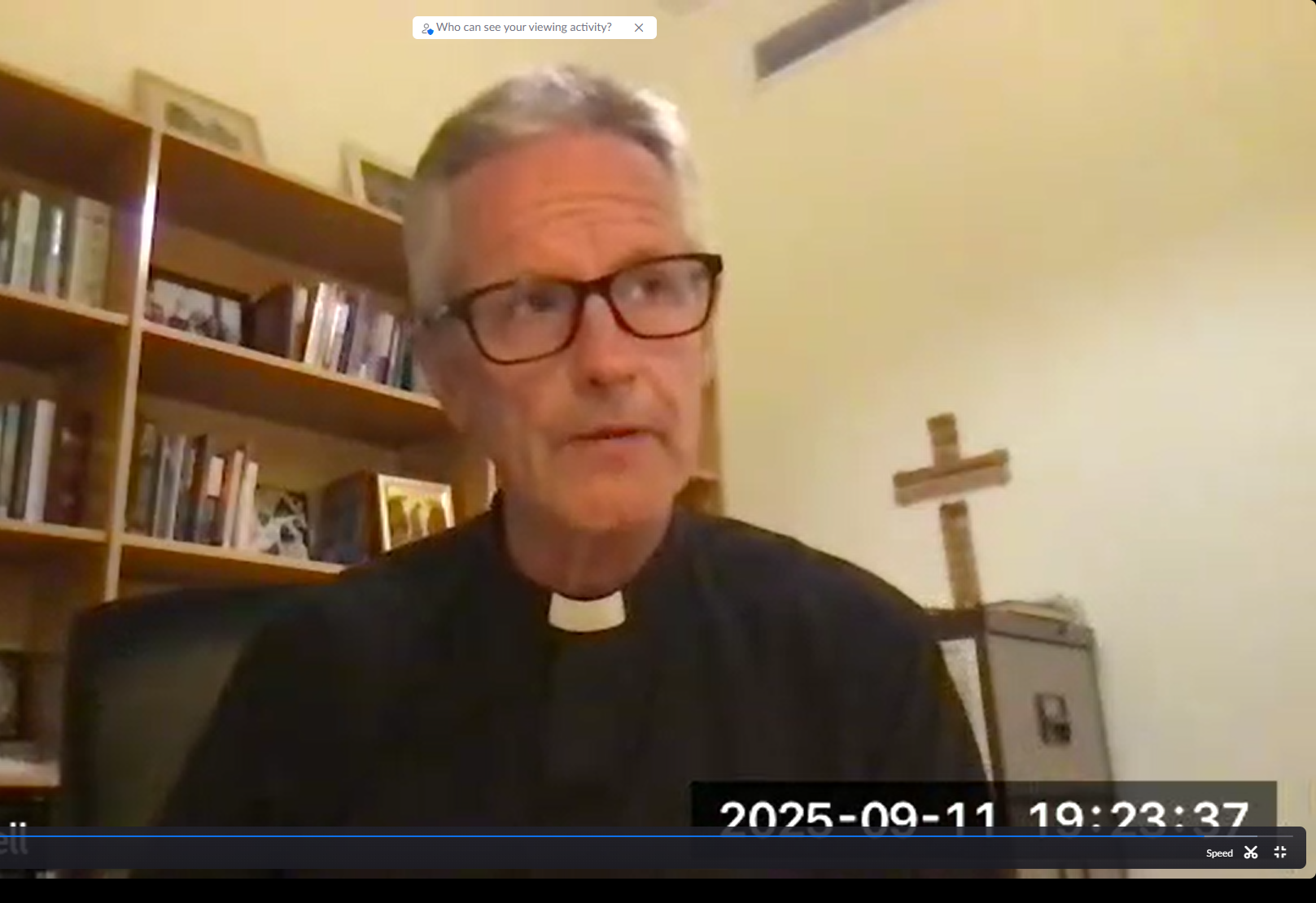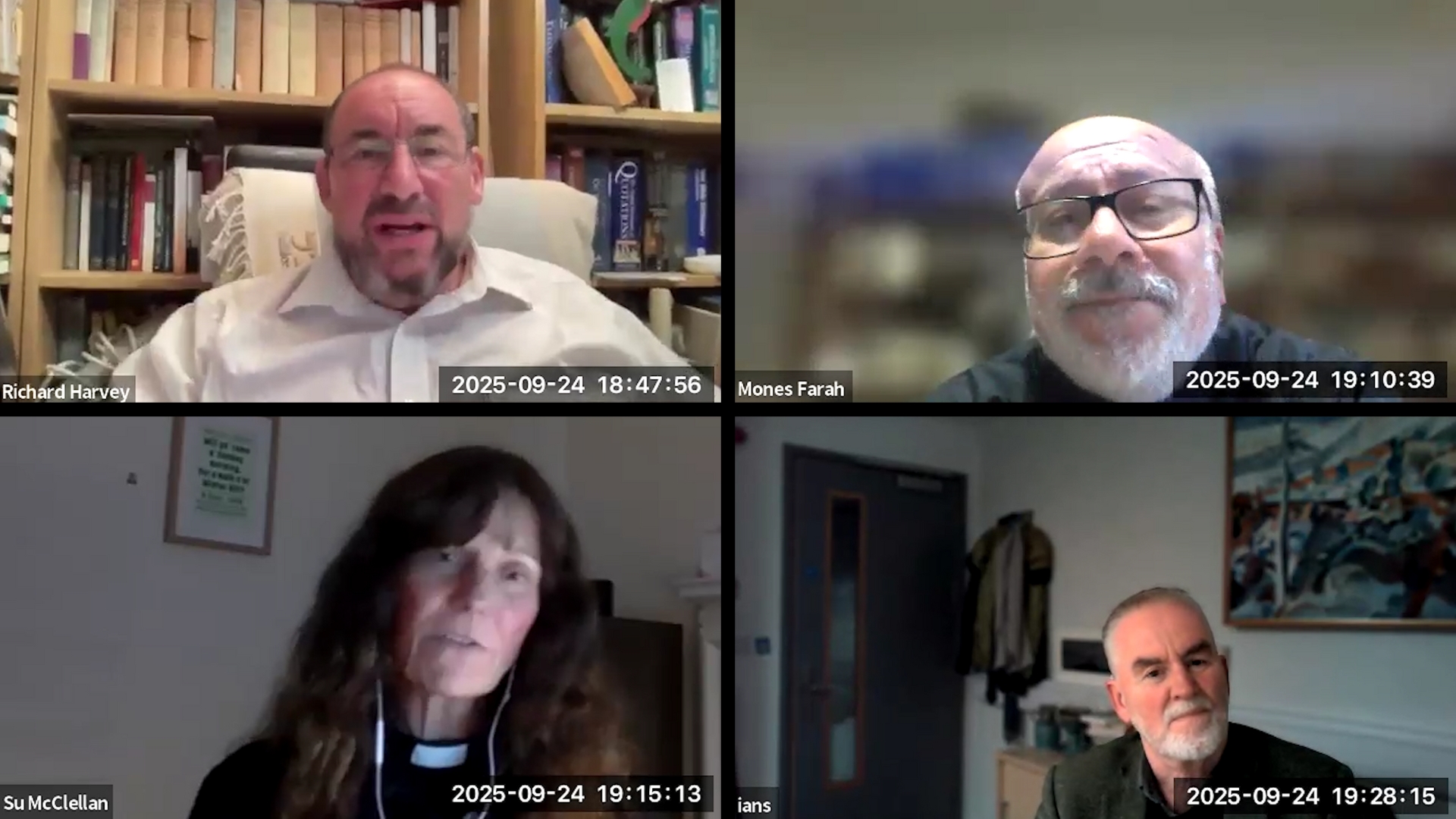Two webinars exploring perspectives on the war in Gaza, organised by the diocesan justice network Seeing Differently, included reflections from Christian and Jewish leaders in the UK and in Israel and Palestine.
In the first, listeners heard from the Very Rev Richard Sewell, the Dean of Jerusalem, who spoke of the horrific murder of more than 1,000 Israelis on October 7 2023, and the ensuing assault on Gaza, which is resulting in the deaths of tens of thousands of civilians and widespread starvation.
Dean Richard urged people in the UK to stand alongside those suffering and bear witness, and not to give up. He said, “I pray that Christians and churches will be in the forefront, standing up for the weak and the vulnerable. We live by the Beatitudes, and so we should be standing up for the dignity and value of every single person.” 
In the second webinar held this week, a panel of speakers addressed questions about the conflict and how Christians can respond to it.
The panel were: Archdeacon Mones Farah, archdeacon of the Church in Wales and a Palestinian Christian, born in Lebanon to a refugee family; Ian Stackhouse, senior pastor at Millmead, Guildford Baptist Church and an author; Richard Harvey a Messianic Jewish theologian and historian, specialising in Jewish–Christian relations and the history of the Hebrew Christian and Messianic Jewish movements and Su McClellan, the Church Engagement Lead at Embrace the Middle East and Associate Minister at Coventry Cathedral, where she is part of the reconciliation team.
Archdeacon Mones urged listeners not to pray for the situation until we pray first for ourselves, that we will be full of integrity and will not pray in terms of sides in the conflict but as “two sides of the same coin”.
And Ian reminded us of the words of Dietrich Bonhoeffer that we need to listen more and speak less, and that gatherings such as the discussion were a good way to begin listening to eac h other.
h other.
Richard spoke of the importance of hospitality, of prayer, of reading scripture and acts of loving kindness, in sustaining our engagement and commitment to the people of the Holy Land. “My hope is in the power of God’s faithfulness, and even when the path is dark, that assures me, “ he said.
And Su offered a framework of four ‘c’s’: compassion, courage to speak up for justice, clarity to see what is really going on, and curiosity to understand more and hear from those living in Israel and Palestine.
“For those of us who don’t live in Israel and Palestine, that may be something that can provide a strong framework for solidarity”, she said. “We remember we do all belong to one another and all of us are so desperately concerned for all the people who call the Holy Land home.”
Embrace the Middle East is publishing a four-week course written by Su on 7 Oct, called Gracious Dialogue: A guide to Listening and Speaking Well about Israel and Palestine. It will be available here: Resources - Gracious Dialogue
Seeing Differently, a justice network is a network of lay and clergy people across the diocese committed to justice in all areas of our lives: it meets bi-monthly online with offers of training and in-person learning twice a year. Email justice@salisbury.anglican.org if you'd like to know more and join.


